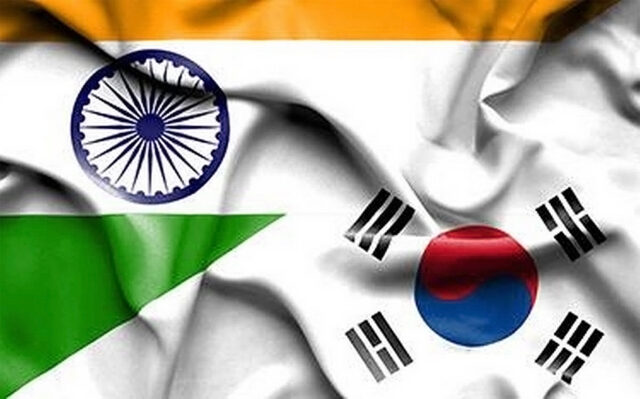India-South Korea relations have come a long way. Today the relations are vibrant, dynamic and is going to witness more dynamism in coming years. Going by the recent trends, it appears as if the people-to-people connect and their appreciation for each other’s culture is going to define the future of the bilateral ties.
If one has to highlight some of the high points between the two countries, India has actively played a positive role after Korea got independence. Shri KPS Menon from India served as the chairman of the 9-member commission, set up by the UN, to oversee the elections. Indian Lt. General K.S. Thimayya was the chairman of the Neutral Nations Repatriation Commission (NNRC); the commission looked at several humanitarian issues post war. The Commission’s efforts in discharging its duties were much appreciated.
In recent times, President Dr APJ Abdul Kalam visited Seoul in 2006, which made way for the setting up of the Joint Task Force to sign a bilateral Comprehensive Economic Partnership Agreement (CEPA). The Korean President H.E. Mr. Lee Myung-bak, was the chief guest at the Republic Day celebrations in India in 2010. During this time, the bilateral ties were elevated to strategic partnership level. This was followed by the visit by Indian President Smt Pratibha Devisingh Patil in 2011. This visit resulted in the signing of the Civil Nuclear Energy Cooperation Agreement. When Prime Minister Manmohan Singh was visiting Seoul, the next year, the sides signed an agreement to simplify the visa process. In January 2014, South Korean President Park Geun-hye was in India. The emphasis of this visit was to deepen political, security, defence ties. Both sides also agreed to expand the scope of relations to include more people-to-people ties, increase economic, scientific and technological cooperation.
The Indian Prime Minister Shri Narendra Modi visited Seoul in 2019. Prime Minister Modi was conferred with the Seoul Peace Prize during his visit. Prime Minister Modi stressed about the complementary nature of the two countries, which can drive deeper economic engagements, boost trade and development.
Dynamic Economic Ties
If one has to pin-point at some of the enabling factors which brought the two countries together, they would be India’s liberalisation programme, carried out over a period of late 1980s and 1990s, and India’s Look East Policy, formulated around the 1990s. South Korea’s strong manufacturing base was ready to invest in the burgeoning Indian market. Big South Korean manufacturing players such as Samsung, Hyundai, Daewoo, KIA set up shops and manufacturing units in India. These brands emerged as a popular choice among Indians.
As India stands committed to more economic reforms, we are going to witness deepening engagement between India and South Korea.
Cultural Bond
While trade and investments between the two countries have grown impressively in recent decades, it would be wrong if one does not talk about the growing cultural bond between India and South Korea. As many Indians and Koreans are living in South Korea and India, respectively, the population has developed mutual admiration for each other’s culture, food and more. And with the spurt of social media and ease of information flow, Indian people have developed a healthy appetite for K-Pop and Korean dramas and series, easily accessible through OTTs. If there is quite a craze for Korean skincare products and food, Koreans have also developed the taste of Indian cuisines. Fan-base of Bollywood is ever increasing in Korea.
As Indians and South Koreans have developed a liking for each other’s cultures, it has unleashed a different kind of dynamism between the two countries’ ties. It looks as if such mutual liking and appreciation of each other’s culture is going to be the driving force to take the relationship to the next level.









